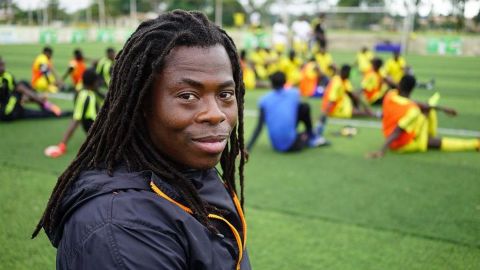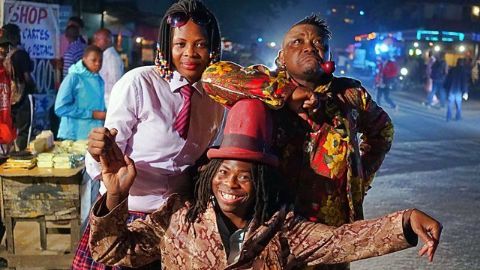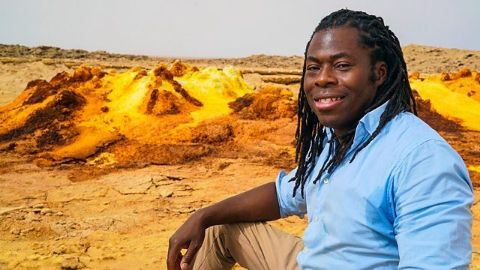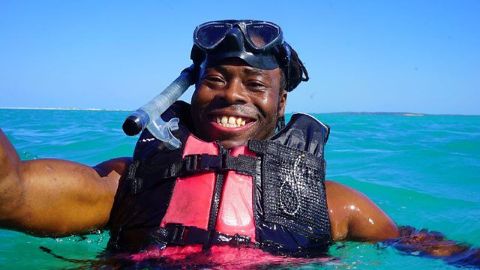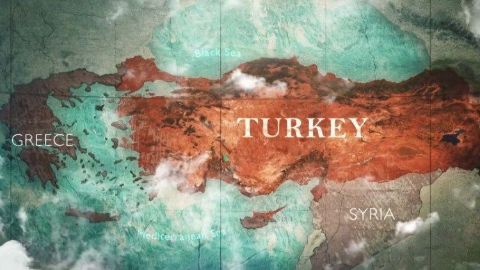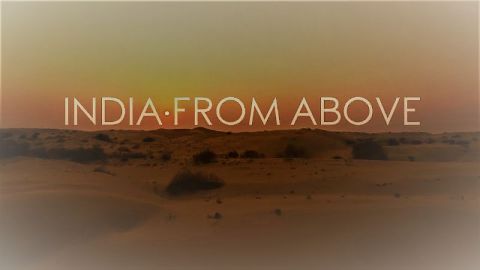West • 2019 • episode "S1E1" • Africa with Ade Adepitan
Ade Adepitan embarks on the first leg of his epic journey around Africa. Starting in west Africa, this episode sees Ade traveling from Cape Verde to Senegal and the Ivory Coast, before finishing in Nigeria - the country of his birth. In Cape Verde - a group of tiny volcanic islands in the Atlantic - Ade visits a community living in the shadow of an active volcano. He also witnesses how solar power is transforming lives by bringing electricity to isolated communities. Ade's next stop is Senegal. Here he visits Goree Island - a former staging post in the transatlantic slave trade. He then travels down the coast to a fishing village, where he hears that much of Senegal's catch is being taken by foreign companies and turned into fishmeal to feed western livestock. Making a last stop on his journey through Senegal, Ade visits Lake Retba where he joins the workers who wade through the lake gathering salt which they sell for less than half a penny a kilogram. Ade's host has tried to escape poverty by migrating to Europe, but - like so many others - he never got further than the horrors of the camps in Libya. In the Ivory Coast, Ade meets more people who share the dream of getting to Europe. This time, however, they are footballers training to become professionals in Europe's big leagues. But it does not always work out, as many are scammed into giving their cash to dodgy football agents. The final stop is Nigeria, the country Ade was born in. In Lagos he meets some old friends who play para soccer, and he also visits the largest church building on the planet. Traveling out of Lagos, he discovers a country in chaos. Under armed escort, he hears about a conflict that has created hundreds of thousands refugees, but barely been reported on in the west. He finishes his journey at Nigeria's equivalent to Silicon Valley – a company that believes tech can transform the continent.
Make a donation
Buy a brother a hot coffee? Or a cold beer?
Hope you're finding these documentaries fascinating and eye-opening. It's just me, working hard behind the scenes to bring you this enriching content.
Running and maintaining a website like this takes time and resources. That's why I'm reaching out to you. If you appreciate what I do and would like to support my efforts, would you consider "buying me a coffee"?
Donation addresses
BTC: bc1q8ldskxh4x9qnddhcrgcun8rtvddeldm2a07r2v
ETH: 0x5CCAAA1afc5c5D814129d99277dDb5A979672116
With your donation through , you can show your appreciation and help me keep this project going. Every contribution, no matter how small, makes a significant impact. It goes directly towards covering server costs.
